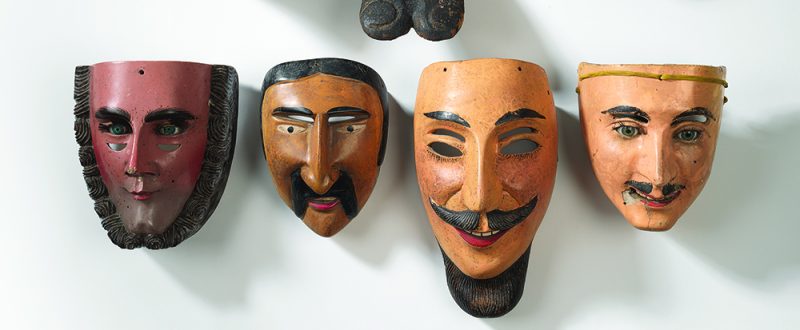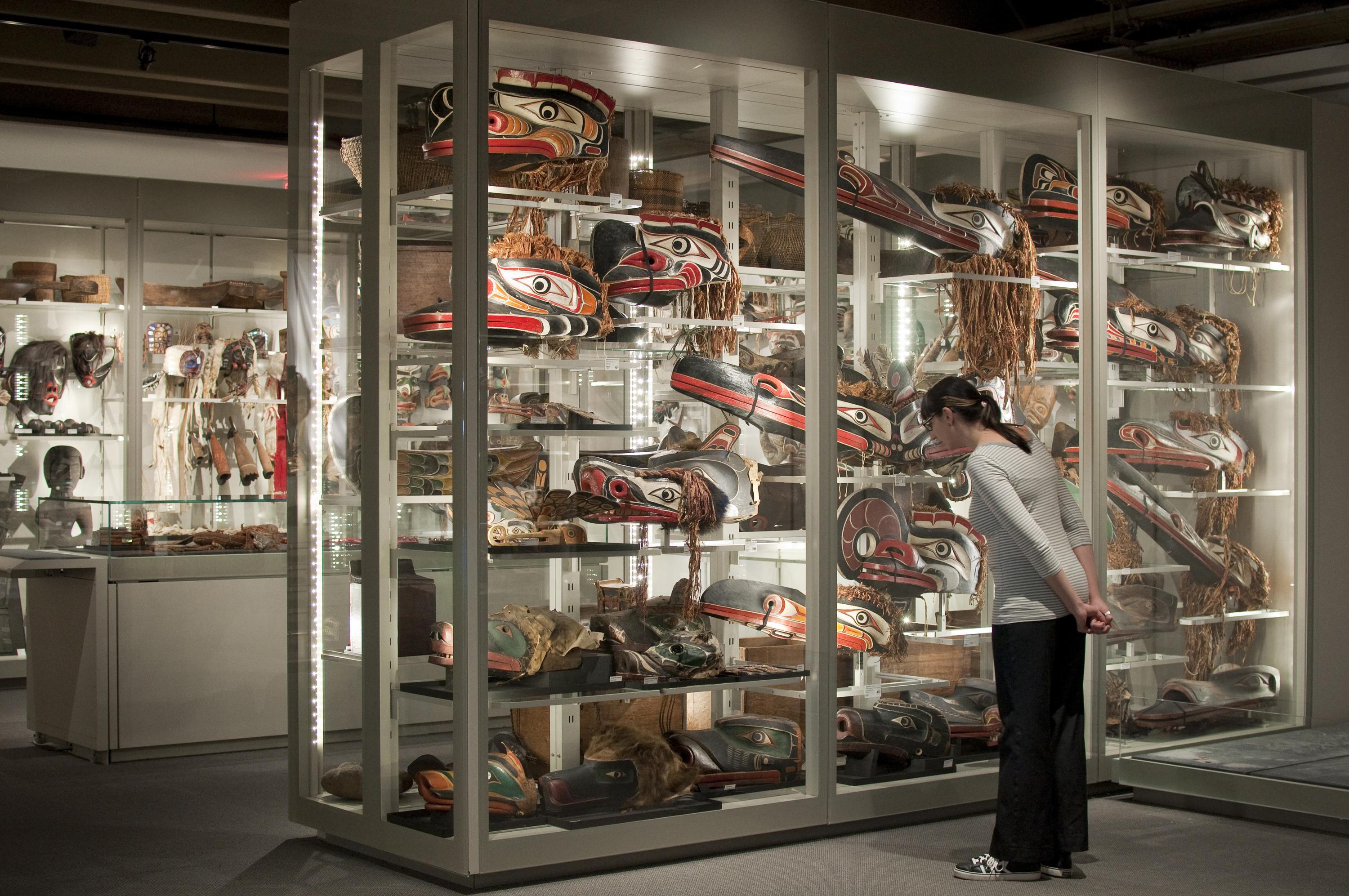Visual + Material Culture Research Seminar Series – Winter/Spring 2022
This interdisciplinary seminar series is for anyone with interests in visual and material culture across different departments at UBC and beyond. The seminar provides an opportunity to share research and exchange ideas, usually followed by conversations over a drink at Koerner’s Pub. Open to students, staff, faculty and community members in and around UBC.
The seminars will be held in a hybrid mode this term: in-person at MOA and online via Zoom (subject to change due to COVID-19). The seminars will not be recorded.
Please note: The January 20, February 3, February 17, March 3 seminars will take place online only.
Participation is free, but if you’d like attend online, registration is required (links below).
Where: Room 213 at MOA (near the reception desk, opposite the MOA Library and Archives); and via Zoom (download the app here)
When: Select Thursdays, 4 – 5 pm
Conveners: Dr. Fuyubi Nakamura, MOA Curator, Asia and UBC Asian Studies, Dr. Nuno Porto, MOA Curator, Africa + Latin America and UBC Art History, Visual Art & Theory, and Dr. Kelly Midori McCormick, UBC History.
Winter/Spring 2022 series
January 20: “1b, black legs, 52″.” Karice Mitchell, lecturer, Department of Art History, Visual Arts & Theory, UBC
February 3: “From the Clock to the Maze: The Knowledge of “Incense-Seal Pictures” between Premodern Chinese Compilers and a Modern Oriental Author.” Haoyue Li, PhD student, Department of Asian Studies, UBC
February 17: “Visual Politics: Documenting Black Western Canadian Diasporic Cultural Production.” Nya Lewis Williams, curator, founder and directo, BlackArt Gastown + programmer, Vancouver Queer Film Festival
March 3: “Japanese Girls’ Science Fiction Manga and Women Manga Artists.” Yuki Ohsawa, postdoctoral teaching fellow, Department of Asian Studies, UBC
March 17: “Materializing Haa Aaní: Tlingit Beading Practices and the Land.” Megan A. Smetzer, acting curator of Western Ethnology, Canadian Museum of History + lecturer, Art History Department, Capilano University
March 31: “Belonging at the Table: Curators’ Reflections on the ‘A Seat at the Table’ exhibition.” Denise Fong, PhD candidate, Interdisciplinary Studies Graduate Program, UBC and Henry Yu, associate professor, Department of History + principal of St. John’s College, UBC
January 20, 2022—1b, black legs, 52″
Speaker: Karice Mitchell, lecturer, Department of Art History, Visual Arts & Theory, UBC

Mitchell’s research sees pornography as a field full of potential to begin fostering new relationships between black women and sexuality. While allowing space to acknowledge the historical legacy of racism in an effort to subvert it, her work strives to re-imagine new possibilities of Black womanhood detached from white supremacy and patriarchy. Through the recontextualization of images from black erotica through different material explorations and digital processes, her work seeks to reclaim the Black female body to reframe it as a polyvalent, complex subject to begin thinking more radically of Black female sexuality.
Please note: Due to COVID-19, this seminar will take place online only. Register for 1b, black legs, 52″
February 3, 2022—From the Clock to the Maze: The Knowledge of “Incense-Seal Pictures” between Premodern Chinese Compilers and a Modern Oriental Author
Speaker: Haoyue Li, PhD student, Department of Asian Studies, UBC

In Dutch orientalist Robert van Gulik’s (1910-1967) fictional work, The Chinese Maze Murders (1956), the author tells a series of detective stories of the Tang-dynasty magistrate Judge Dee (630-704). Although this novel is notable for its imitation of Chinese crime-case fiction, this seminar will focus instead on van Gulik’s cartography of an extraordinary place – a maze. Li’s seminar situates van Gulik’s maze into the broader socio-cultural context of the recording of “incense-seal pictures” in medieval and late imperial Chinese scent manuals. The seminar also further compares the image-making aesthetics between the pre-modern incense-burning tradition and modern oriental fictional writings. Although existing scholarship argues that van Guilk’s maze map imitates traditional Chinese “incense-seal pictures,” Li contends that the latter is different from the former in terms of its emphasis on the different dimensions of image-making and knowledge-making.
Please note: Due to COVID-19, this seminar will take place online only. Register for From the Clock to the Maze
February 17, 2022—Visual Politics: Documenting Black Western Canadian Diasporic Cultural Production
Speaker: Nya Lewis Williams, curator, founder and director, BlackArt Gastown + programmer, Vancouver Queer Film Festival

The seminar aims to analyze histories of Black cultural production in Western Canada, through a critical overview of the contemporary social, historical, and political landscape by examining six notable, and underrepresented works by Black Canadian artists, central to the visibility and voice of Black Canadian cultural production, markers for Black Canadian art. Williams will articulate this approach from the standpoint of her curatorial practice that aims to highlight the contributions of Black and Afro-Diasporic cultural producers whose thought-provoking work frames an emerging lens of visual and material heritage; laying a foundation for fruitful dialogue surrounding the preservation of the Black Canadian aesthetic, the underrepresentation and insufficient documentation and dissemination of Black and African Canadian histories, and the implications of anti-Black racism within art institutions, impacting artistic expression, community building, and representation.
Please note: Due to COVID-19, this seminar will take place online only.
Register for Visual Politics
March 3, 2022—Japanese Girls’ Science Fiction Manga and Women Manga Artists
Speaker: Yuki Ohsawa, postdoctoral teaching fellow, Department of Asian Studies, UBC

Post-war Japanese science fiction manga and anime illustrate a futuristic world, expressing both the desires and fears related to advanced technologies. Generally speaking, those sci-fi manga were shonen (for boys/young men) and illustrated by male manga artists in Japan. However, there are high-quality sci-fi manga from female manga artists which more often reflect the problems and desires of females in modern Japanese society. This seminar will analyze shojo (girls’) sci-fi in the 1970s, when a group of female manga artists greatly influenced shojo (girls’) manga. It will also discuss the works of these female artists in order to explore what kinds of messages and desires they have tried to illustrate for their female audiences. The seminar will also explore many of the differences and similarities between shojo (girls’) sci-fi and shonen (boys’) sci-fi.
Please note: This seminar will take place online only.
Register for Japanese Girls’ Science Fiction Manga
March 17, 2022—Materializing Haa Aaní: Tlingit Beading Practices and the Land

Speaker: Megan A. Smetzer, acting curator of Western Ethnology, Canadian Museum of History + lecturer, Art History Department, Capilano University
The increasingly rich array of cultural expressions created by contemporary women artists for use in communities as well as for display in museums and galleries results directly from the resilience of previous generations of Tlingit women. The mothers, grandmothers, and aunties of the four artists introduced in this seminar persisted through the darkest years of settler colonialism, making and selling beadwork that set the stage for the revival or expansion of weaving, carving, painting, installation and other cultural and artistic practices. Though the work of revitalization is far from over, Tlingit women are, as they have always been, the backbone of this cultural shift — making tangible haa aaní (honoring and utilizing the land), acknowledging and representing haa latseen (strength of body, mind, and spirit) and haa shuká (honoring ancestors and future generations), all of which contribute to the assertion of wooch yáx, (maintaining social and spiritual balance and harmony).
Register for Materializing Haa Aaní
March 31, 2022—Belonging at the Table: Curators’ Reflections on the ‘A Seat at the Table’ exhibition
Speakers: Denise Fong, PhD candidate, Interdisciplinary Studies Graduate Program, UBC and Henry Yu, associate professor, Department of History and principal of St. John’s College, UBC

This seminar features Henry Yu and Denise Fong, co-curators of a Chinese Canadian immigration exhibition entitled A Seat at the Table: Chinese Immigration and British Columbia at the Museum of Vancouver and in Vancouver Chinatown. This innovative exhibition brings together the voices of curators, community storytellers, contemporary artists, immersive designers and filmmakers by exploring the theme of food as a narrative entry point to address anti-Asian racism, intercultural relationships and community resilience in the context of British Columbia’s history. The speakers will present an overview of systemic discrimination experienced by Chinese immigrants in the history of BC and Canadian history and share their reflections on racialized representations, anti-Asian racism and reconciliation through the process of co-curating this exhibition. An emphasis will be placed on discussing Chinese Canadian representations in popular culture, participatory curation, and the role of immersive digital media in the curatorial process.















